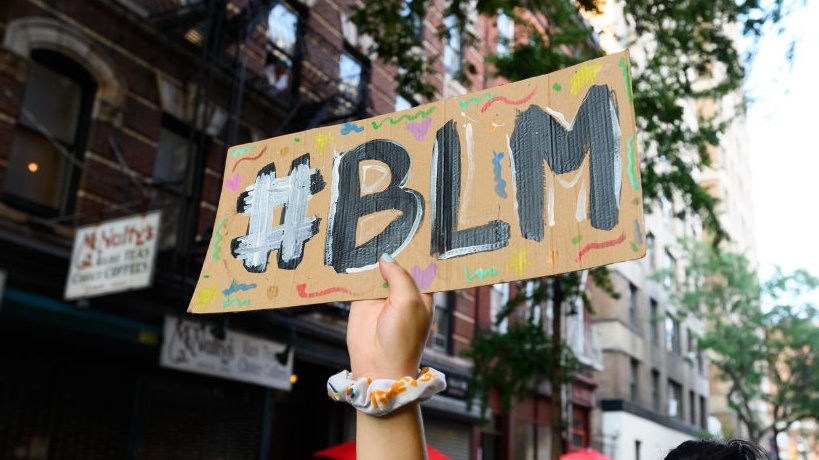San Francisco officials approved a measure to curb racially discriminatory phone calls to law enforcement agencies in a unanimous vote on Tuesday.
The CAREN Act was originally introduced in July at a previous San Francisco Board of Supervisors meeting after a local white couple called the police on a man writing “Black Lives Matter” in front of his home, as Blavity previously
reported.
The motion would award the victim damages of at least $1,000 if they pursued legal action, according to ABC 7.
The name of the bill is a reference to the epithet “Karen,” which is often used to describe a middle-aged white woman displaying entitled or demanding behavior, according to Urbandictionary.com. In July, Amy Cooper was lauded as a Karen after charges were brought against her for calling the police on a Black bird watcher who raised issue with the woman’s unleashed dog, as Blavity previously reported.
San Francisco's CAREN ACT, short for Caution Against Racially Exploitative Non-Emergencies, will expound upon the city’s definition of protected citizens to restrict fake emergency calls that are intended to discriminate against a person on the basis of their race, ancestry, age, religion, disability, sexual orientation or gender identity, according to a press release obtained by ABC 7.
"When law enforcement responds to non-emergency calls as a result of the caller's prejudice, discriminatory views, and racial bias, it diverts resources away from actual emergencies to the unnecessary policing of people of color," the release stated. "This is another form of racial violence instigated against people of color that causes further mistrust between communities of color and law enforcement."
With Tuesday’s unanimous vote, the next step for the bill to become law will require another round of votes next week. After that, it will be sent to San Francisco Mayor London Breed for her approval, according to CNN.
In February 2019, California Assemblyman Rob Bonta introduced a similar bill, AB 1550, that would make it unlawful for a caller to "fabricate false racially-biased emergency reports.”
Bonta tweeted about a partnership with supervisor Shamann Walker against the discriminatory practice in July and wrote that emergency phone calls used as tools to oppress people of color are unjust. He said the bill he introduced, and many of the edicts like it, aren’t designed to discourage people from calling police if they are in need.
"This bill could protect millions of Californians from becoming targets of hate and prevent the weaponization of our law enforcement against communities of color," Bonta said in a statement.
With civil pressure mounting due to social justice conversations, a number of other cities have also started to look into passing ordinances of the same nature.
In Los Angeles, City Councilman Curren Price introduced a similar bill in June and called on city officials "to explore our options, including criminal penalties, rights of victims to bring private civil actions and cost recovery by the City."
I introduced a motion today that would make it illegal to call 911 to make a false report based on racial bias. I'm asking City departments to explore our options, including criminal penalties, rights of victims to bring private civil actions and cost recovery by the City. pic.twitter.com/T3OizTxMU1
— Curren D. Price, Jr. (@CurrenDPriceJr) June 17, 2020
In August 2019, the Grand Rapids City Commission in Michigan voted unanimously to revise the city’s human rights ordinance. The decision developed the definition of “Bias Crime Reporting Prohibition” and includes a $500 “civil infraction to knowingly or recklessly report an individual” based upon discriminatory practices.
New York Gov. Andrew Cuomo leaned on state politicians this summer to endorse a bill that would end the false reporting practice after Cooper went viral for her incident in New York City's Central Park, Syracuse.com reports.
"We’ve seen 911 calls which are race-based, false calls. A false 911 call based on race should be classified as a hate crime in the state of New York,” Cuomo said.
